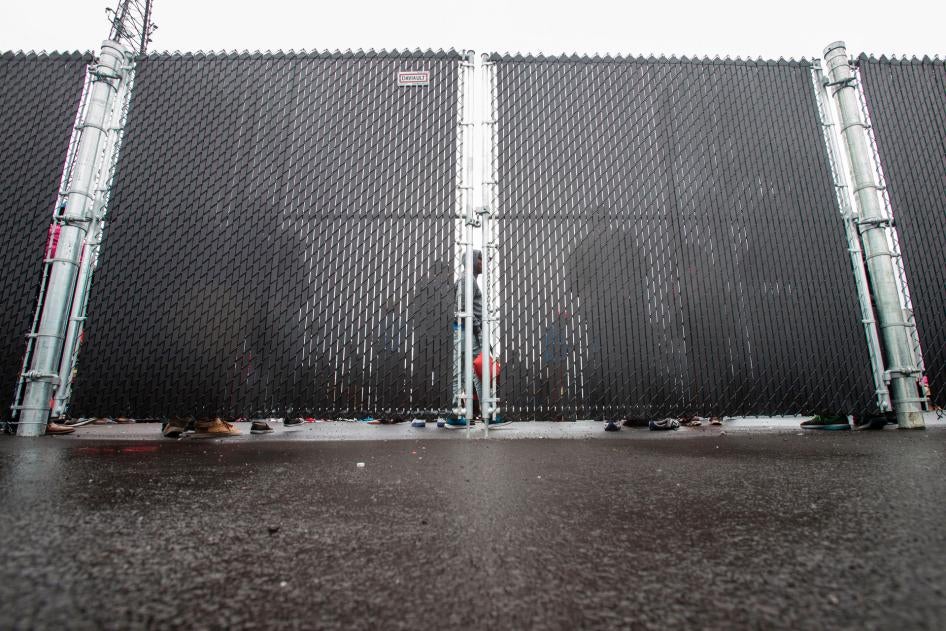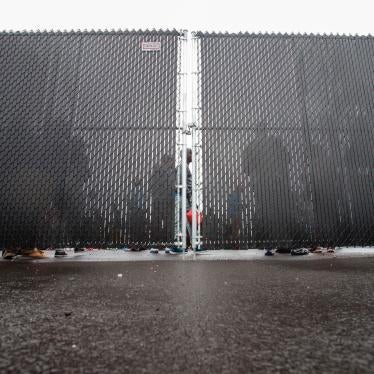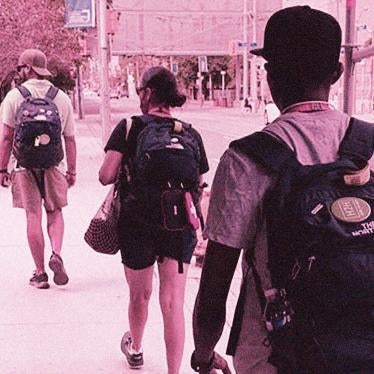“The reason I came [to Canada] is to seek refuge, but the punishment I got for that – I never experienced that anywhere else,” Ebrahim Toure testified on November 16th from the Toronto Immigration Holding Centre at his detention review hearing, which we monitored on behalf of Human Rights Watch and Amnesty International.
Over his 10 years in Canada, Toure unsuccessfully applied for asylum and sat through approximately 70 detention review hearings, where the Canada Border Services Agency (CBSA) argued he should be incarcerated, claiming he is unlikely to show up to be deported. Toure spent five and a half years in immigration detention – between 2013 and 2018 – mostly in a maximum-security jail, despite never being charged with a crime in Canada, while CBSA tried to obtain identity documents necessary to deport him.
CBSA officers have enormous discretion to exercise one of the most invasive acts a government can take against individuals: depriving them of their liberty. Canada remains one of only a few countries without a cap on the length of immigration detention. This immense power creates the conditions for serious human rights violations, including arbitrary and indefinite detention.
Despite Canada’s international reputation as a safe haven, Toure’s case is egregious but not unique. His case highlights grave injustices that persist through a culture of impunity and disregard for basic legal standards within Canada’s immigration detention system.
Toure lived in both the Gambia and Guinea as a child, but does not know where he was born. Neither country had acknowledged his citizenship. At the latest hearing he testified that, while he was in jail years ago, a CBSA officer warned that if he ever wanted to “make it out of jail,” he should say he is from the Gambia: “So I said I’m from the Gambia.”
Last month, CBSA scheduled Toure’s deportation and detained him again. During the latest hearing, Toure’s lawyer said the CBSA officer on his case “behaved like a vigilante” in his efforts to deport him.
The officer testified he used his personal email and phone to communicate with Gambian authorities, relied on a confidential informant whose identity was only known to him, and never read CBSA’s policy on confidential informants. Toure’s lawyer also pointed to irregularities in the identity documents the officer obtained for the deportation, raising questions about their authenticity. The tribunal conducting Toure’s hearing released him, but CBSA is still pursuing his deportation to the Gambia next month.
In 2019, the UN Working Group on Arbitrary Detention determined Toure’s detention was arbitrary and violated international law; it urged Canada to conduct a “full and independent investigation,” but the government has not complied.
The UN also expressed concern over Toure’s health. While he was in jail and in CBSA custody, a doctor prescribed him anti-psychotic medication without formally diagnosing him. In 2017, four years into Toure’s detention, a psychiatric evaluation found that he developed “hallucinations, blunted affect,” and “very poor” memory. Toure also contemplated suicide. The evaluation noted, “the circumstances of [Toure’s] detention could be precipitating and perpetuating causes of a dissociative order.”
Before Toure’s release in 2018, during a break in one of his hearings, two CBSA officers were overheard strategizing about how to “rattle his fuckin’ cages” as they prepared to cross-examine him, so that he might “slip up.”
In 2016, CBSA embarked on a new National Immigration Detention Framework, promising to create “a better, fairer” system that “supports the humane and dignified treatment of individuals while protecting public safety.” Toure’s case makes clear not much has changed. CBSA has trouble even abiding by basic legal and ethical standards.
The wave of demonstrations this summer brought into sharper focus severe issues of systemic racism and abuse by police, and the need for improved oversight. CBSA remains Canada’s only enforcement agency with no independent civilian oversight to review policies or investigate misconduct.
Immigration Minister Marco Mendicino and Public Safety Minister Bill Blair have a clear opportunity to follow the UN Working Group’s recommendations, stop Toure’s deportation, and investigate CBSA’s conduct. This case illustrates with painful clarity that legislative and structural changes are necessary to prevent human rights violations within the immigration detention system. The rule of law does not provide adequate protection when it fails to live up to fundamental principles of justice.
In the time since Toure was released in 2018, he got a job, fell in love and got married. He and his wife had their first child last week.
Despite managing to start building a home in Canada, during his hearing Toure expressed disillusionment. “There is no justice in Canada,” he said. “There is no truth here. What people hear about Canada outside is different than what it is on the inside. You can’t put people in prison for almost six years without charge.”








